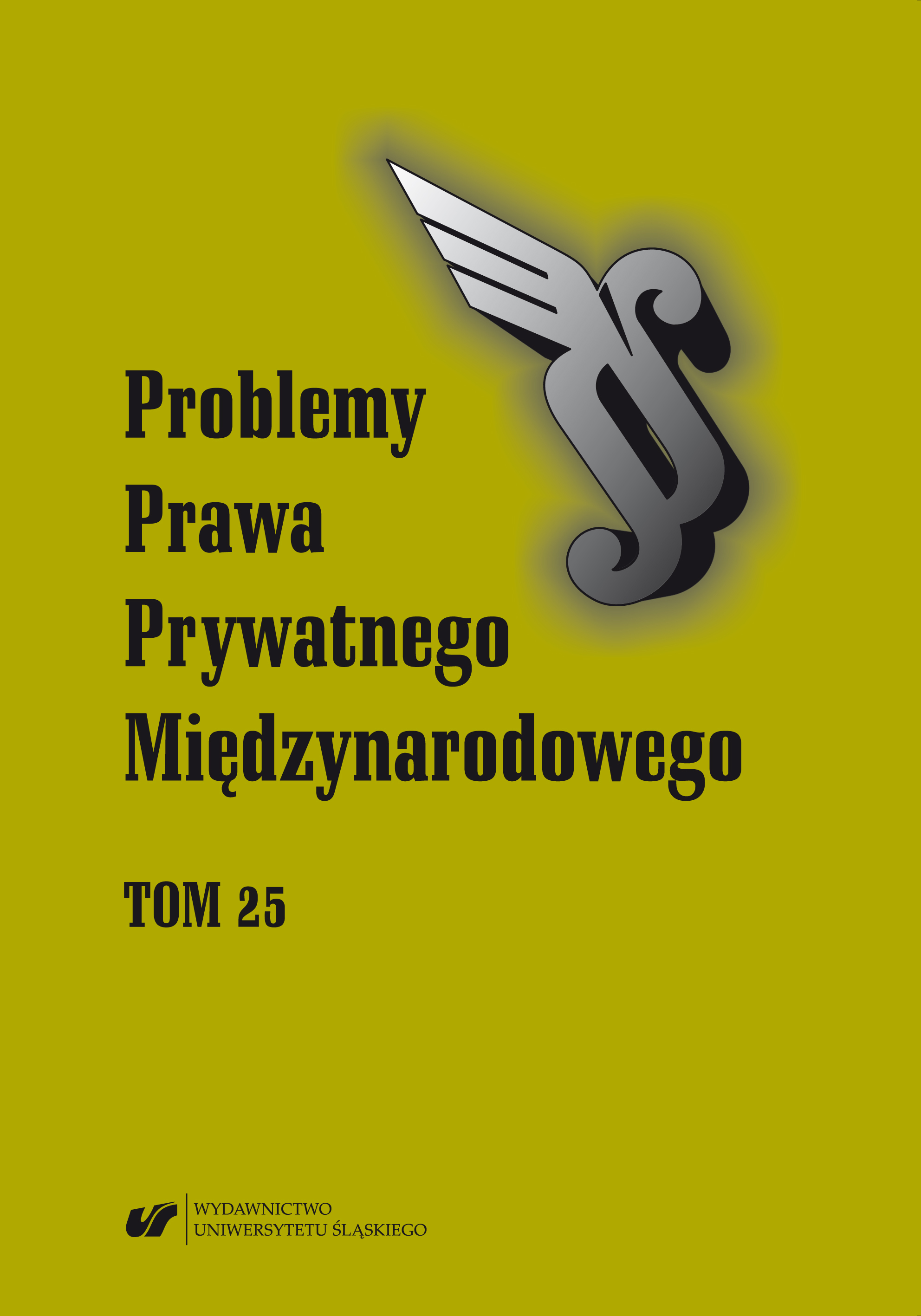Kwalifikacja w prawie prywatnym międzynarodowym Unii Europejskiej. Od kwalifikacji autonomicznej ku… kwalifikacji według kolizyjnej legis fori?
Characterization in EU private international law. From autonomous characterization to... specific functional characterization?
Author(s): Jarosław Grzegorz PacułaSubject(s): History of Law, International Law, EU-Legislation, Sociology of Law
Published by: Wydawnictwo Uniwersytetu Śląskiego
Keywords: EU private international law; autonomous interpretation; characterization; autonomous characterization;
Summary/Abstract: The terms ‘characterization’ (‘classification’) and ‘exercise of characterization’ refer in particular to the efforts made to determine which conflict of law rule — and in the sense presented in this paper, also rule on jurisdiction — which is part of the law of the forum State, should be applied to the circumstances of a particular case. In relation to the norms of private international law of the European Union, the triumph of an autonomous characterization at first sight seems undeniable. The term autonomous characterization (in principle — ‘autonomous interpretation’, the case law usually does not distinguish between exercise of characterization and exercise of interpretation) has been referred to over the last fifty years in order to describe the vast majority of operations of interpretation undertaken in relation to the norms of EU private international law. The contemporary concept of characterization in private law of the European Union, although consistently referred to as ‘autonomous’, does not fully meet the criteria thereof. The papers argues that while the starting point was the autonomous characterization in its pure form (stage one), over time it partially gave way to the place of characterization according to the EU law-oriented legis fori (stage two), and finally it was enriched with new elements which gave it the form of a specific functional characterization (stage three). It is not so much about the consistency of the results of the exercises of characterization with the universal understanding of certain concepts. Exercises of characterization are carried out through the prism of their effects, so as to ensure the effectiveness of the norms of EU law (effet utile) other than rules on conflict of laws and on jurisdiction.
Journal: Problemy Prawa Prywatnego Międzynarodowego
- Issue Year: 2019
- Issue No: 25
- Page Range: 107-122
- Page Count: 16
- Language: Polish

